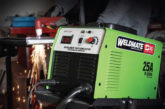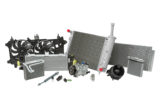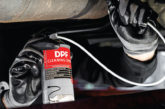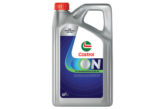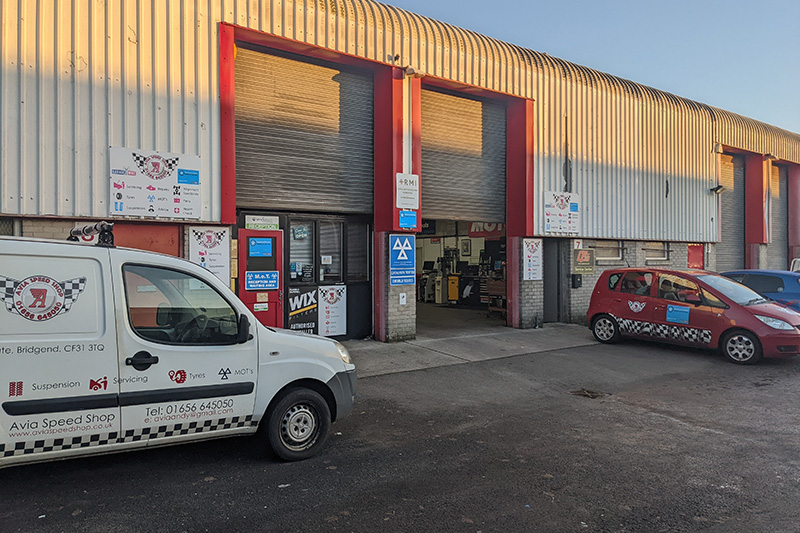
With the ongoing problem of counterfeit parts circulating online and ever more complex issues surrounding vehicle safety and workshop liability, Avia Autos’ Hayley Pells wonders what processes an independent workshop can put in place to ensure they and their customers are safe.
Recent concerns highlighted by the latest DVSA vehicle market surveillance Unit have many garage owners asking what more they can do to protect their motorists from potential harm parts that are not fit for purpose can cause, in addition to the increasing number of advanced driver assistance systems (ADAS), is there a more complex responsibility for the workshop once the motorist has left the premises?
Back in April this year, concerning news from the DVSA’s market surveillance unit broke regarding the compliance of OEM and aftermarket braking components. The IAAF announced the findings that eight different brands of brake pads were tested with three being found not to meet the performance requirements and therefore non-compliant for R-90 (Since November 2016, the ECE R90 regulation means that all vehicles from that point are only allowed to be driven with ECE R90 approved parts). Digging further it was found that the approval documents for these components were false and the packaging displayed approval numbers that were not valid for the product within for the application it is available to buy for. The three brands were instructed to withdraw the brake pads from sale until the proper approvals have been granted and the relevant approval authority has also been notified of the incorrect use of their approval.
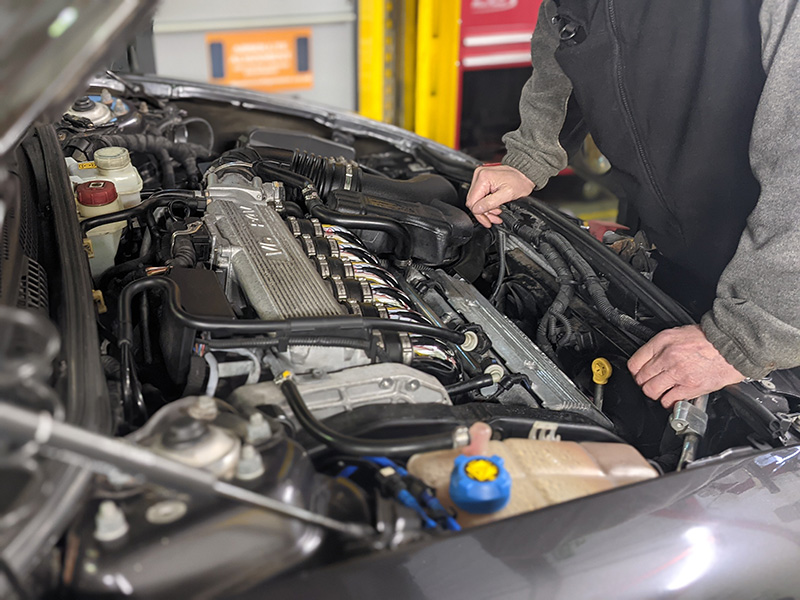
Meeting regulation
The Vehicle Market Surveillance Unit carries out its investigations and tests based on an annual programme covering the products available in the UK market, but also using reports from the industry and reports from the public. Once a focus for investigation has been determined, using intelligence-led investigations the DVSA can also work with the police and other government departments.
Mark Field, IAAF Chief Executive, comments on the issue: “It’s clear that more work needs to be done on re-educating parts of the market on the requirements of regulation R90, both for pads and discs, something which IAAF will look to support the market with in the coming months. It’s also evident from DVSA that every business in the supply chain – garages, motor factors, suppliers – has a responsibility to ensure the parts they sell and fit meet the regulations for which they were intended.”
Fitting quality parts that meet regulation expectation should be the normal practice of any workshop, in addition to this – steps a garage can take include:
- not accepting supplied parts
- buying from reputable sources
- keep accurate records of parts purchased and sold
- staying informed with industry news
- regular continuous professional development (CPD), appropriately logged – such as with the IMI digital solution
- communications with motorists for work authorised/declined should be kept, digital solutions work well
- complete ADR training
- membership with a trade body approved by Chartered Trading Standards Institute
- keep policies clear, up to date, and ensure they are communicated
- respond to complaints and problems efficiently, documenting conversations
These are some of the tools available to the independent workshop to ensure they are making every reasonable effort to fit safe and legal components. It is important to note that all components should be checked before fitting and that they are correct and compliant. The final failsafe to the consumer is the installer, a worrying place for a workshop owner if the standards that are relied upon are compromised by falsified records. If every care is taken by the garage, it is reasonable to have faith in the standards that protect everyone. Brakes have been brought into focus in recent months, at the time of writing the IAAF and the DVSA are actively working together to ensure all reasonable measures are taken to ensure components that do not meet the regulations do not find their way onto public highways and both businesses and motorists are protected.
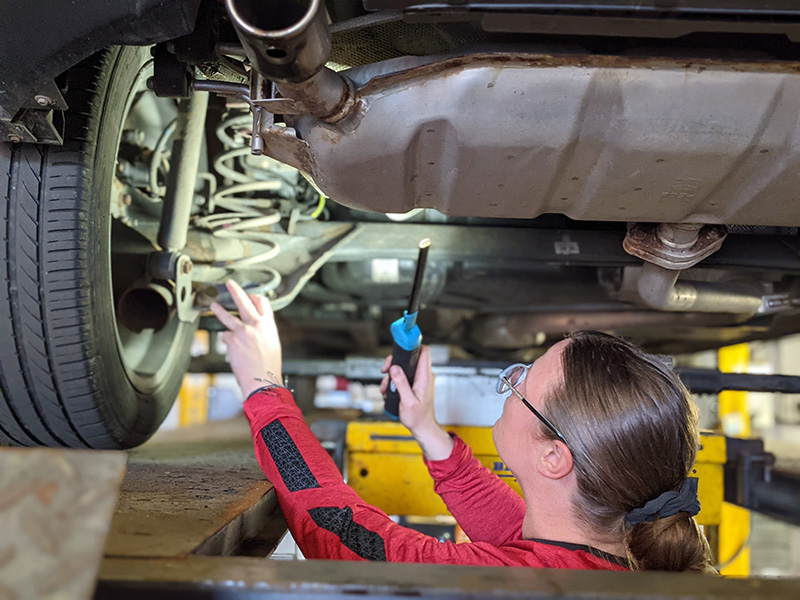
Self-driving technology
A new area for the industry, advancements in technology for self-driving are becoming more commonplace. Although true full self-driving is fraught with complexities and barriers to implementation, ADAS is very much a technology that is on British roads right now. Learning about the responsibilities of working with this technology now will provide a foundation to understanding the potential requirements for working with selfdriving technology.
Covered in PMM’s April 2021 edition, the mechanics of the technology and its calibration was explored. Andy Morrison of Bosch states that accurate calibration is vitally important to ensure the correct functioning of the system for both safety and customer satisfaction, but he continues with the explanation of the overriding concern for liability. As most ADAS can be classed as safety critical, the implications for the workshop are clear when the motorist, as a lay person, is taking every reasonable effort to present their vehicle to a professional for maintenance and/or repair.
Ultimate responsibility of controlling a vehicle is always with the driver, but as reliance on these systems increases, having the correct tools for the job is a reasonable expectation from the motorist when a workshop accepts a job.

